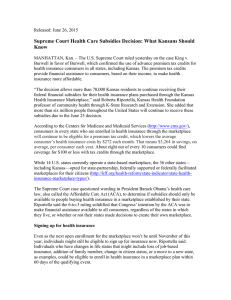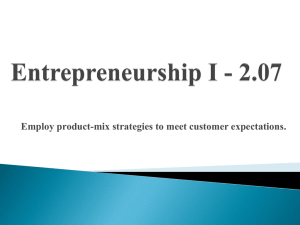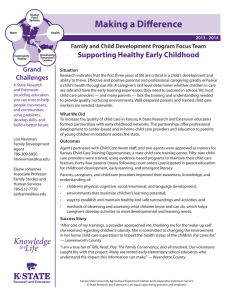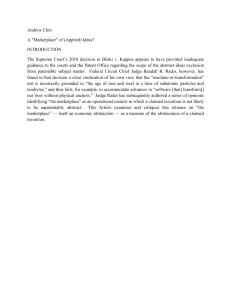Health Insurance Options Outside Open Enrollment
advertisement
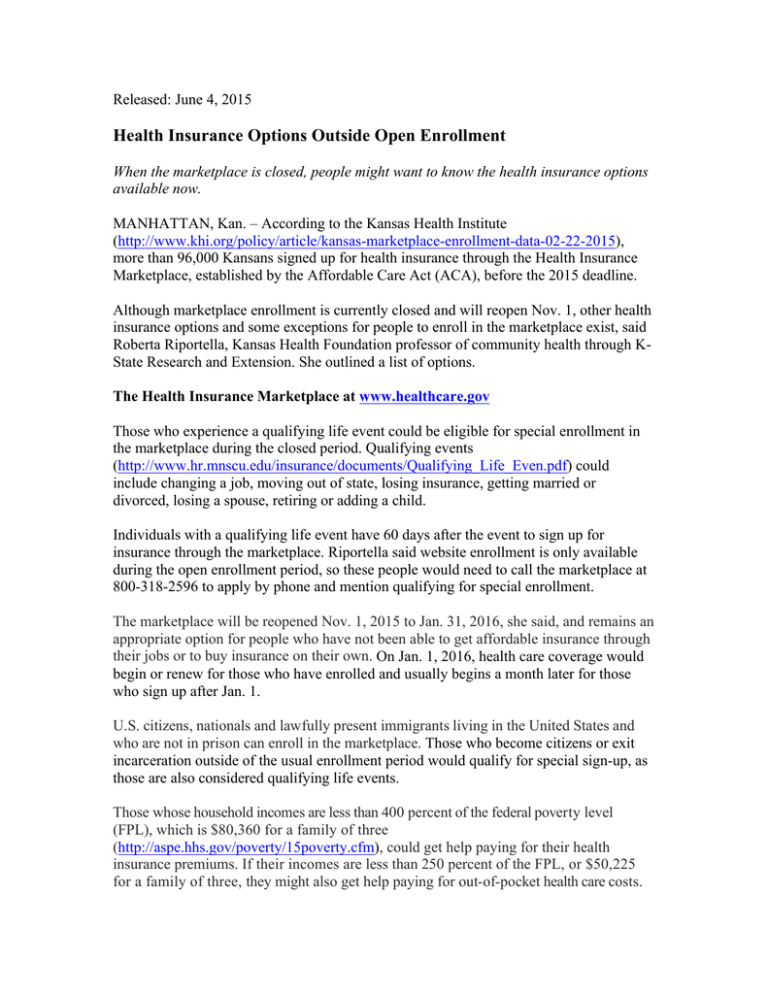
Released: June 4, 2015 Health Insurance Options Outside Open Enrollment When the marketplace is closed, people might want to know the health insurance options available now. MANHATTAN, Kan. – According to the Kansas Health Institute (http://www.khi.org/policy/article/kansas-marketplace-enrollment-data-02-22-2015), more than 96,000 Kansans signed up for health insurance through the Health Insurance Marketplace, established by the Affordable Care Act (ACA), before the 2015 deadline. Although marketplace enrollment is currently closed and will reopen Nov. 1, other health insurance options and some exceptions for people to enroll in the marketplace exist, said Roberta Riportella, Kansas Health Foundation professor of community health through KState Research and Extension. She outlined a list of options. The Health Insurance Marketplace at www.healthcare.gov Those who experience a qualifying life event could be eligible for special enrollment in the marketplace during the closed period. Qualifying events (http://www.hr.mnscu.edu/insurance/documents/Qualifying_Life_Even.pdf) could include changing a job, moving out of state, losing insurance, getting married or divorced, losing a spouse, retiring or adding a child. Individuals with a qualifying life event have 60 days after the event to sign up for insurance through the marketplace. Riportella said website enrollment is only available during the open enrollment period, so these people would need to call the marketplace at 800-318-2596 to apply by phone and mention qualifying for special enrollment. The marketplace will be reopened Nov. 1, 2015 to Jan. 31, 2016, she said, and remains an appropriate option for people who have not been able to get affordable insurance through their jobs or to buy insurance on their own. On Jan. 1, 2016, health care coverage would begin or renew for those who have enrolled and usually begins a month later for those who sign up after Jan. 1. U.S. citizens, nationals and lawfully present immigrants living in the United States and who are not in prison can enroll in the marketplace. Those who become citizens or exit incarceration outside of the usual enrollment period would qualify for special sign-up, as those are also considered qualifying life events. Those whose household incomes are less than 400 percent of the federal poverty level (FPL), which is $80,360 for a family of three (http://aspe.hhs.gov/poverty/15poverty.cfm), could get help paying for their health insurance premiums. If their incomes are less than 250 percent of the FPL, or $50,225 for a family of three, they might also get help paying for out-of-pocket health care costs. Most people who have work-based insurance are not eligible for tax credits or cost sharing, Riportella said. The ACA tries to keep people in work-based insurance if it is affordable and adequate. Affordable means the cost of an individual policy, not a family policy, is less than 9.5 percent of total household income. Adequate means the plan pays, on average, 60 percent of all medical costs in a given year. Insurance through a job Riportella said insurance through a job stays the same unless the employer decides to make changes, which can occur at any time. Losing job-based insurance, or having it become unaffordable or inadequate according to the definitions above, qualifies a person to sign up for a plan in the marketplace if done within 60 days of the change or loss. KanCare at www.kancare.ks.gov KanCare is the Kansas’ Medicaid program for U.S. citizens and lawfully present immigrants. It provides insurance for low-income individuals who are over 65, under 18 or disabled. Children and pregnant women might be eligible for KanCare if their household incomes are less than 247 percent of the FPL. Riportella said to check for eligibility on the KanCare or marketplace websites. Other health insurance options Anyone already insured through a public program is considered insured and does not need to make insurance changes, Riportella said. Public programs include Medicare, TRICARE, Veterans Affairs (VA) or the Indian Health Service (IHS). Adults age 65 and older have the Medicare health insurance option. Certain younger people with disabilities and people with end-stage renal disease and amyotrophic lateral sclerosis, commonly called ALS or Lou Gehrig’s disease, will continue to get their health insurance through this federal program. Riportella said they will continue to need supplemental and Part D (prescription drug) coverage plans, which they can get at www.medicare.gov, not www.healthcare.gov. TRICARE (http://www.tricare.mil) is a U.S. Department of Defense health care program for eligible members of the seven uniformed services and their families. The VA health benefits program (http://www.va.gov/healthbenefits) provides coverage for eligible veterans who served in the U.S. military. The IHS (http://www.ihs.gov) is a health care system for federally recognized American Indian and Alaska Natives. More information Health insurance exemptions can be found on the marketplace website (https://www.healthcare.gov/exemptions/). KHI also has numerous resources about health insurance on its website (http://www.khi.org/). Read more about issues in health reform on Riportella’s blog (http://blogs.k-state.edu/issuesinhealthreform/). Sidebar: Health Insurance: Protecting Against Risk Everyone, with a few exemptions (https://www.healthcare.gov/exemptions/), must have health insurance, or be subject to a penalty fee, also called an individual responsibility payment. Those who are uninsured for tax year 2015 will be faced with a fine of 2 percent of the amount of their modified adjusted gross annual household income over a set amount of approximately $10,000. For tax year 2016, the penalty will be 2.5 percent. “The penalty calculation is a bit confusing, but know it will cost families more than they perhaps anticipate if they choose to go without insurance,” said Roberta Riportella, Kansas Health Foundation professor of community health through K-State Research and Extension. Elizabeth Kiss, K-State Research and Extension family resource management specialist, said even if people pay the fee, they still will not have any health insurance coverage and will be responsible for 100 percent of the cost of any medical care they receive. “Not only does purchasing health insurance have the potential to improve our health, it also protects against the risk of large financial expenses if we experience injury or illness,” Kiss said. “Medical expenses have been a leading cause of personal bankruptcy. With health insurance, families are better able to plan for medical expenses, because they can budget for premiums and out-of-pocket expenses of their plans.” -30K-State Research and Extension is a short name for the Kansas State University Agricultural Experiment Station and Cooperative Extension Service, a program designed to generate and distribute useful knowledge for the well-being of Kansans. Supported by county, state, federal and private funds, the program has county Extension offices, experiment fields, area Extension offices and regional research centers statewide. Its headquarters is on the K-State campus, Manhattan. Story by: Katie Allen katielynn@ksu.edu 785-532-1162 K-State Research and Extension For more information: Roberta Riportella – rriporte@ksu.edu or 785-532-1942 Elizabeth Kiss – dekiss4@ksu.edu or 785-532-1946

